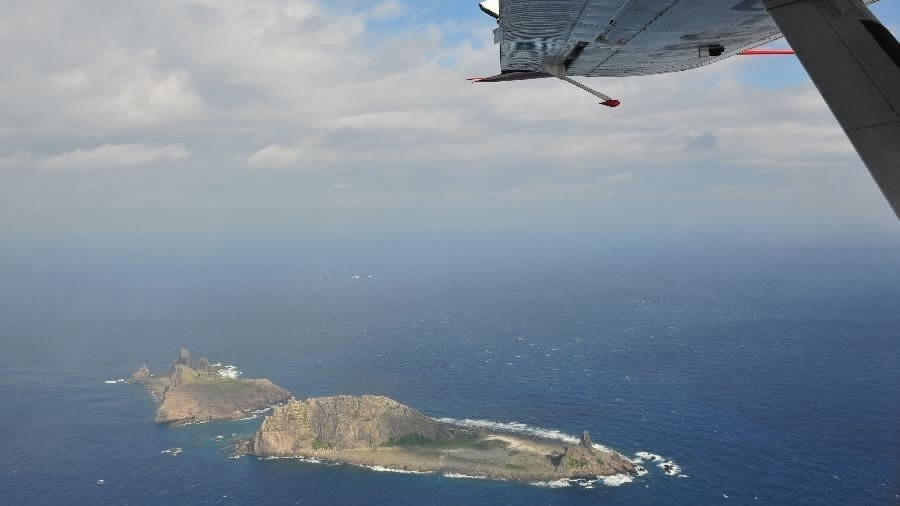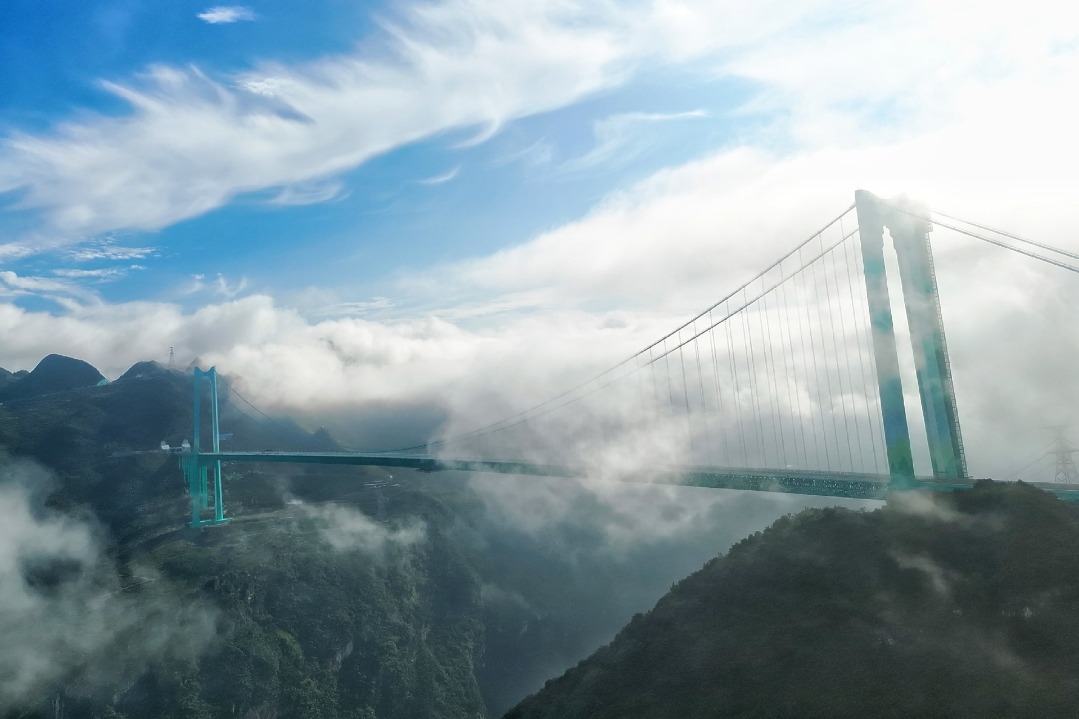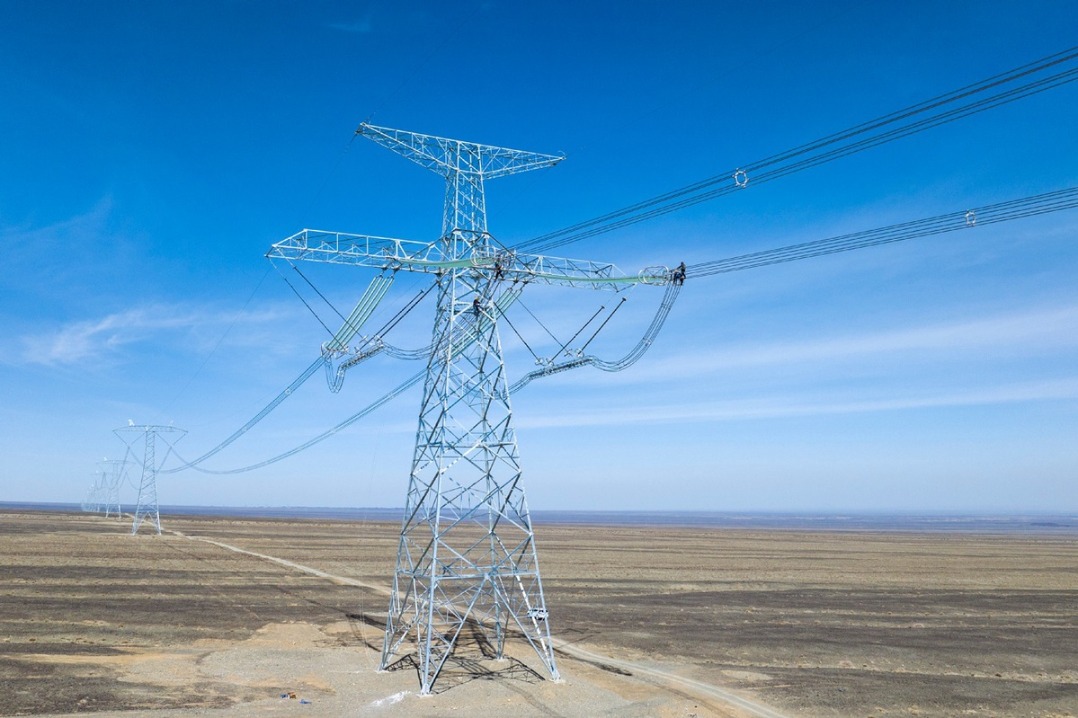Japan is the 'destructor of peace and stability'


The Chinese Coast Guard carried out rights protection patrols in the territorial waters of the Diaoyu Islands, on June 7, in order to safeguard national sovereignty, security and maritime rights and interests in accordance with the law. However, the Japanese side once again hyped it up.
Since the second decade of the 21st century, Japan has continuously changed the status quo of the Diaoyu Islands and created tensions in the East China Sea. China, in line with its responsibility as a major country, has continuously worked to maintain regional and maritime peace and stability. Japan's unreasonable hype will not help control and resolve disputes. Instead, its efforts will only backfire on it, exposing the fact that Japan is the "destructor of peace and stability."
The Diaoyu Islands are an inherent territory of China. China was the first to discover, name, and utilize the Diaoyu Islands, and has implemented long-term jurisdiction over them. From a historical, geographical, and legal perspective, China has indisputable sovereignty over the Diaoyu Islands. Japan occupied the islands as a result of the Sino-Japanese War of Jiawu (1894). According to international legal documents such as the Cairo Declaration and the Potsdam Declaration, the return of the Diaoyu Islands to China is undisputed. Before Okinawa was reversed to Japanese control under the Okinawa Reversion Agreement on May 15, 1972, China had already expressed opposition to including the Diaoyu Islands in the "Reversion zone". No country has the right to question China's sovereignty over the Diaoyu Islands.
China has always exercised restraint in its maritime actions for the sake of regional peace and stability. It is Japan that is the "status quo changer" and "destroyer of maritime peace and stability". The older generation of Chinese and Japanese leaders reached a consensus on "setting aside disputes", but Japan has been lying and refusing to admit that there is a dispute between China and Japan over the sovereignty and territory of the Diaoyu Islands and its affiliated islands. After the boat collision in 2010, Japan violently arrested the Chinese captain. In 2012, the Japanese government ridiculously announced the "purchase of islands" and implemented the so-called "nationalization". This is a serious violation of China's territorial sovereignty and a severe trampling on historical facts and international law. China's strengthening of patrols and safeguarding its rights on the Diaoyu Islands is aimed at countering Japan's unilateral strengthening of actual control.
In recent years, the Japanese authorities has, from time to time, been creating trouble over the Diaoyu Islands issue, and has stepped up its involvement in the South China Sea situation, providing maritime capability assistance to the Philippines, deepening maritime operations cooperation with the United States and the Philippines, and even openly and rudely interfering in China's internal affairs, and repeatedly making irresponsible remarks such as "if there is trouble in the Taiwan Strait, it is Japan's trouble." Japan's actions have seriously violated the four-point principled consensus between China and Japan, greatly undermined the peace and stability of the East China Sea, the South China Sea, and the Taiwan Strait, and have become a source of danger in the region.
Japan's protest against China's patrol in the Diaoyu Islands is a typical case of the thief crying "catch thief". Since 2020, Japan has allowed fishing boats to go to the waters of the Diaoyu Islands and hyped it up on the internet, breaking the tacit understanding between China and Japan to stabilize the situation in the East China Sea and the Diaoyu Islands. For some years now, such fishing boats have been getting closer to the islands and even staying longer there. Once an extreme situation occurs, it will deal a great blow to regional peace and stability. At the end of April this year, five Japanese parliamentarians participated in the "investigation team" organized by the Ishigaki city government and sailed into the territorial waters of the Diaoyu Islands. Among them was Tomomi Inada, acting secretary-general of the LDP of Japan, who served as Japan's defense minister during the Abe administration. The political connivance of the Japanese authorities with the farce at sea is evident. It is worth pointing out that every time Japanese "fishing boats" and the "investigation boat" go to the waters of the Diaoyu Islands, they are "escorted" by the Coast Guard ships, which are equipped with weapons. And the Ishigaki city government is even clamoring to "land on the islands". It is self-evident as to which side, China or Japan, is "changing the status quo" and "escalating tensions". China's strengthening of patrol and law enforcement in the waters of the Diaoyu Islands in accordance with the law is conducive to maintaining regional maritime security.
China does not provoke a threat, but we are not afraid of any. China's actions are a legitimate and reasonable response to Japan's unilateral escalation and provocation, demonstrating its determination to resolutely counter illegal acts that infringe upon China's sovereignty and resolutely safeguard our national territorial sovereignty.
Dr. WANG Xu is Deputy Director of the Institute of Maritime Strategy, China Institutes of Contemporary International Relations (CICIR).
The views don't necessarily reflect those of China Daily.
If you have a specific expertise, or would like to share your thought about our stories, then send us your writings at opinion@chinadaily.com.cn, and comment@chinadaily.com.cn.


































